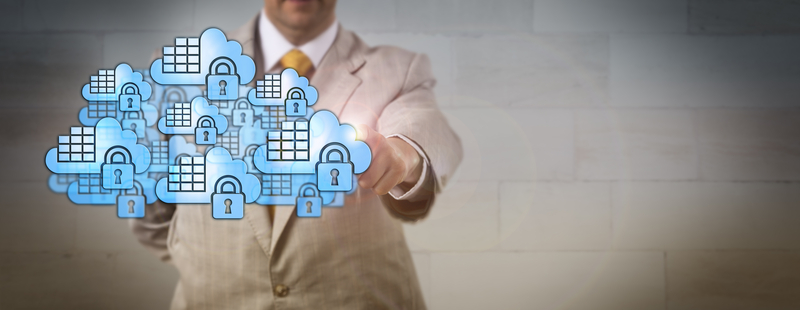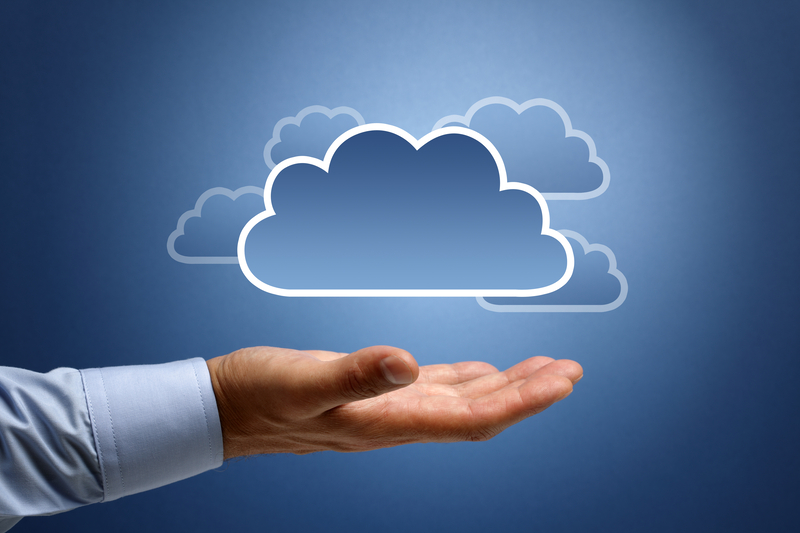
Cloud Computing: How Secure is Cloud Data From Hackers?
More and more people are making the switch from saving all of their important documents and memories on hard drives to cloud-based servers.
This means that they are no longer saved on a single computer, but rather somewhere that is hosted by a third-party provider. This results in less storage clutter on your devices, and it also means that if a device crashes, your files won’t be lost. You have access to them from anywhere in the world, from any device, as long as you have the correct login details.
This article will also interest you: Proven Ways to Protect Your Password From Hackers
But if access is so convenient, and we live in such a technologically advanced age, how safe is your data really? What about if the servers crash? Is your data vulnerable to hackers? Let’s take a closer look at the cloud and put your cybersecurity concerns to rest.
1 – What is the Cloud?

Let’s start with the basics – What is the cloud? If you’ve saved something on Google Docs, then you’ve used a cloud-based service before. A few popular cloud services include Dropbox, online email, and even Netflix, and you can click here to read more about different types of clouds. A cloud service is any software or service you don’t have installed on your computer and have to access via the internet. You can access your account from any device, as long as you have the correct login details.
2 – Security Measures

Wondering if your data is truly safe on the cloud is completely valid. After all, your files being stored somewhere that is not controlled by you can cause discomfort. However, there is no need for this discomfort. In fact, storing things on a cloud is often safer than storing them on your devices. You are more likely to be a victim of phishing, or malware than you are to experience an issue with a cloud platform. This is because these big companies are able to undertake extreme security measures, making their security powerful and quite robust – way more than anything your home computer and devices are capable of.
Servers are usually located somewhere that most don’t have access to, and files are stored on servers that are heavily encrypted. Encryption is important as it scrambles information. This information is only visible to people who have the encryption key, which means it can’t be accessed and read by someone who doesn’t have it. There are a few other things that make the cloud a safe space. Let’s take a closer look at them below.
2.1 Consistent Security Updates
We’re all guilty of clicking that “update later” button when something asks you to update. This can actually cause some serious security concerns and put your device at risk. Software updates are designed not only to make your device run better but to protect you against viruses and malware. Cloud service providers are regularly updating their security to keep your information safe. They have a team of people dedicated to creating software and running programs that are up-to-date with the latest antivirus and malware prevention software. Unlike you and me, they never opt for the “update later” option, ensuring that your files are protected.
2.2 Firewalls
If you aren’t familiar with what a firewall is, think of it as your device’s first line of defense – an extremely strong wall that hackers need to go through before they can get to your personal files. A cloud service provider also relies on a firewall to keep information protected. Firewalls have a special set of rules that they apply to network traffic. Traffic is all of the information being received by the cloud. These rules are designed to filter out traffic that seems suspicious in order to keep your data safe behind the wall. This is one of the many systems in place that make it harder for hackers to sneak malicious software past a cloud’s security measures.
2.3 Third-Party Security Testing
This is a great practice that many cloud service providers hold. A third party is hired to make sure that the protective systems in place are actually effective. They essentially test out the security by simulating a hack into the system and find any signs of weakness that cybercriminals could use to gain entrance to the cloud. They also simulate how security would hold up against the latest malware and viruses. Third-party testing holds no danger to the cloud and your personal information and really helps improve defenses.
2.4 Ultra-Backed-Up
The biggest fear people have is the potential for the cloud to crash. Even if this happens, the cloud is backed up…a lot. Your data is backed up several times on multiple different data centers, to ensure that you won’t lose anything if there is a crash on the main server.
As you can see, cloud service providers take the security of your information and files quite seriously. They have a plethora of protective barriers and practices in place to ensure that your data is kept safe and accessible by only you.
Now access an unlimited number of passwords:
